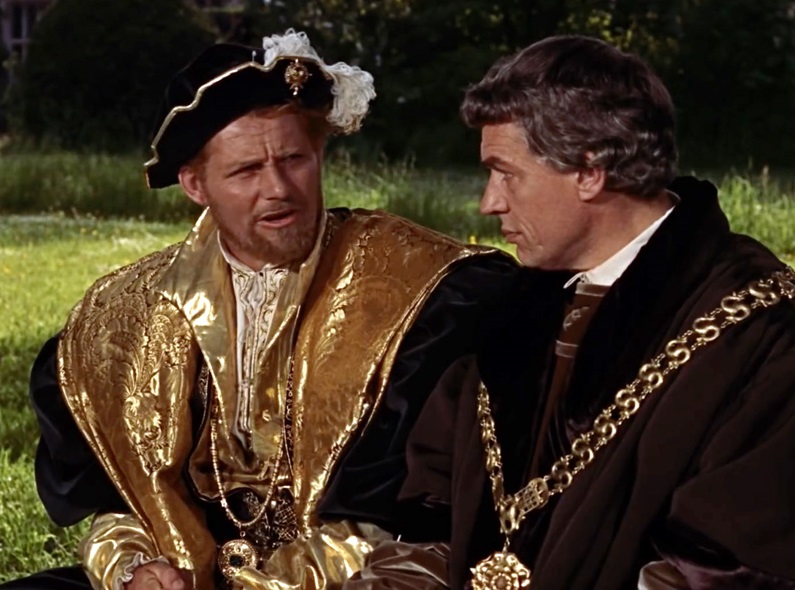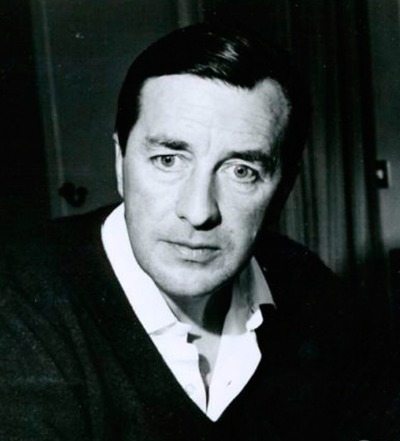
In September 1960, a play that had triumphed during the summer on the London stage was published. It was A man for all seasons, by Robert Bolt, which soon jumped to the American stage and was the most Oscared film in 1966. In Spain it was given the title Un hombre para la eternidad (A man for eternity), of inaccurate meaning. It is an expression of Erasmus of Rotterdam, a friend of Thomas More, the protagonist of the play, whom the Dutch humanist described as a "man for eternity". "a man for all hours, someone who adapts himself to seriousness as well as to happiness, and whose company is always pleasant".
(1924-1995), began his professional career in an insurance company, studied history in Manchester and taught at a school in Devon. He then abandoned teaching after the success of his radio scripts and plays, although his prestige is due to being the screenwriter of Lawrence of Arabia, Doctor Zhivago and Ryan's Daughter, three films by David Lean. These stories have in common characters who are unable to come to terms with their reality and who defy the conditions of their existence, regardless of the price to be paid. They are willing to maintain, no matter who, their own individuality.
Later, Bolt's name was eclipsed, conditioned by the limitations of an illness and a stormy sentimental and family life. However, his last triumphant moment would be the screenplay of Roland Joffé's The Mission (1986).

Englishman Robert Bolt (1924-1995) taught at a school in Devon, but gave up teaching after the success of his screenplays, including Lawrence of Arabia, Doctor Zhivago and The Mission.
It is not meant to evoke a saint, not least because Bolt did not consider himself a Christian and for a time sympathized with an idealized communism. Bolt's Moro is a man marked by an energetic sense of individuality, of self-identity. For his way of understanding the world, he is willing to lose his life.
The author appreciates that it would have been easy for him to maintain his honors by placing his hand on a book with black covers and uttering "an ordinary lie". In contrast, the other courtiers, who surround Thomas More, are opportunists, liars and corrupt, willing to do anything to stay at the top. The portraits of Bishops Wolsey and Cranmer, or of the nobles Cromwell and Norfolk are devastating, but the portrait of Henry VIII is not so devastating.
The king appears only once on the scene. He is a young, gentlemanly, and well-mannered man, who sincerely appreciates Moro and regrets that his opinion on the royal divorce does not coincide with his own.
Henry VIII appears once on the scene. He is a young man, gentlemanly and well-mannered, who appreciates Moor and regrets that they do not agree on the opinion about divorce.
Some say that the actor Paul Scofield was not the most suitable to play Moor. He is too serious for a good-humored Christian as the Lord Chancellor of England. Actually, the problem lies in Bolt's vision of More. He is right to take advantage of the Gospel passage about what good it is for a man to gain the whole world if he loses his soul (Mt 16:26), although Bolt may have wanted to substitute the soul for individuality, the specific way of being.
But if there is someone who is repulsive in the play, more so for Bolt than perhaps for More himself, it is Richard Rich, a young careerist who moves around the Lord Chancellor in the hope that he will grant him an office. Failing to achieve his purpose, he joins the entourage of Cromwell, who rewards him from the first moment, and even testifies against Moor in his trial before parliament.
I recommend to teachers, and non-teachers, the reading, or viewing, of the dialogue between Rich and More at the beginning of the play. Rich is offered a position as a schoolmaster, with a house of his own and an annual income of 50 pounds. But the young man, greedy for fame and honors, considers this offer from Moro insignificant, for it amounts to a life marked by mediocrity. No one will know that he is a great teacher, except his students and friends. It is more attractive to devote himself to politics, despite the risk of falling into temptation, something Moro wanted to avoid with his advice.
Antonio R. Rubio Plo
Degree in History and Law
International writer and analyst
@blogculturayfe / @arubioplo